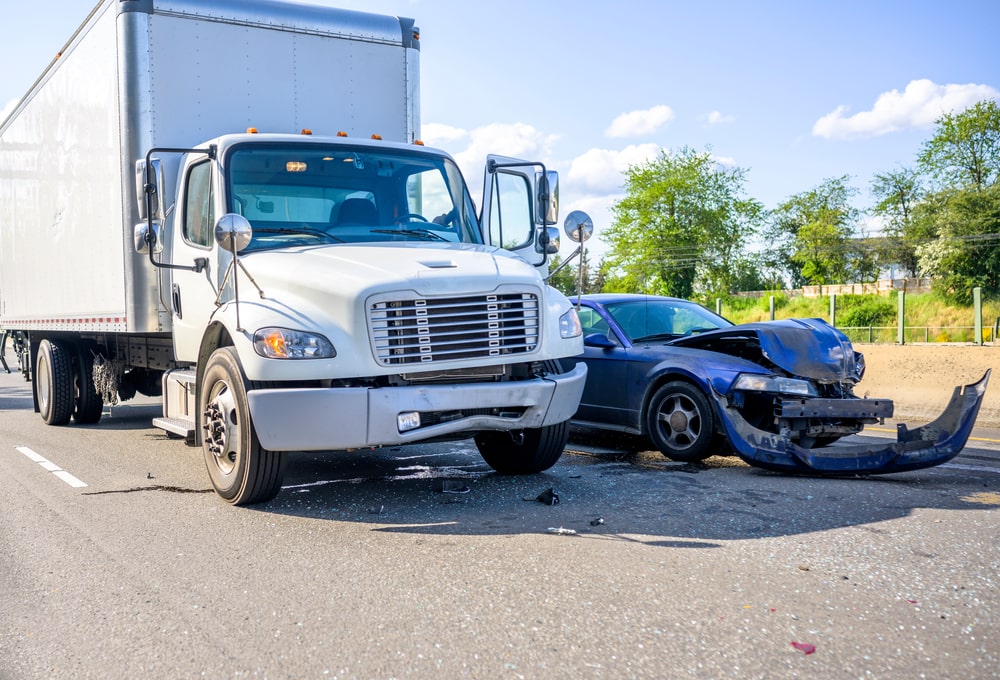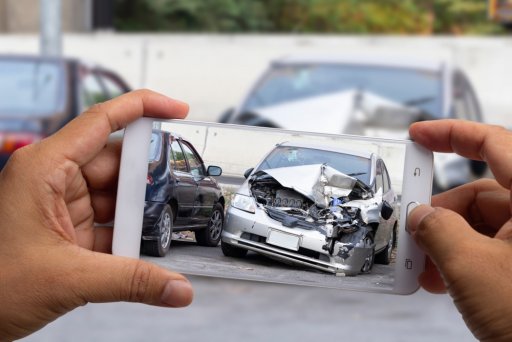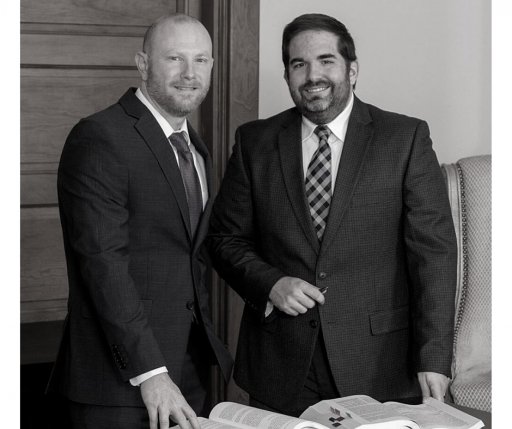You’ve been in a car accident, and the other driver involved was an employee in a company vehicle. The accident involved injuries, and you’re wondering who is legally responsible for the damages. Is the other driver’s employer liable? Do you need to file a claim with your own insurance?
The answer is: it depends.
In these situations, the circumstances determine who is responsible for the damages. In this blog, we’ll discuss a few scenarios in which an employer may be responsible for car accident damages, when to file a claim with your insurance company, and when to hire a personal injury attorney to help you reach a settlement.
Let’s dive in.
Is the Employer Liable? Why Liability Matters
Determining liability is essential to knowing who should file an insurance claim and where to file the claim. Unfortunately, determining liability can also be difficult.
After a car accident – especially one involving a corporate vehicle – there’s a natural inclination for people to “point fingers.” The at-fault party may insist the accident wasn’t their fault, while the innocent party might feel so emotionally shaken that they take the blame.
If you’ve been in a car accident involving a corporate vehicle, it’s important not to make claims or admissions of guilt. Instead, contact the police and wait for an officer to show up and file an official police report. While you wait, use the camera on your phone to document the damages caused by the accident. These photos will come in handy when you file a claim later.
As soon as you’re able, contact a personal injury attorney. A skilled attorney can help you navigate the claims process – regardless of who was at fault – and make sure you’re working within Florida’s No-Fault laws and other legal considerations that may apply.
4 Steps to Take if You’ve Been Involved in an Accident With a Company Vehicle
If you were involved in an accident with a driver in a company vehicle, follow these four steps:
-
Document the scene
After a corporate vehicle hits you, document the scene. Use your cell phone’s camera to take photos of the following:
- Your car
- The corporate vehicle
- The position of both cars relative to the road, intersections, road signs, etc.
- Up-close images of the damage to your car and the damage to the corporate vehicle.
- Any employer information evident on the corporate vehicle, including employer branding, phone numbers, and “am I driving safely?” hotlines.
- Your injuries, if applicable.
In addition to taking photos of the above, talk to witnesses. Take down witnesses’ contact information and names so you can get in touch with them later. While all of this may seem like overkill, it will help you prove liability (and secure your payout) down the road.
-
Decide who is at fault – is the Employer liable?
Before moving forward with a claim and settlement, you need to know who was financially responsible for the collision.
Again, this is a complex process, and it’s impossible to do it alone.
With this in mind, we recommend hiring a personal injury attorney. Personal injury attorneys understand the ins and outs of commercial vehicle accidents and can guide you based on the specifics of your situation.
A personal injury attorney will advocate for you, navigate the complexities of the case, help you document your claim, and help determine if the employer is liable. Plus, since most personal injury attorneys don’t require a fee upfront, you can retain excellent representation without breaking the bank.
-
File an insurance claim
Filing an insurance claim can be difficult after an accident with a company vehicle.
Companies are generally responsible for the actions of employees who are “on the clock.” That means that when an employee crashes a company vehicle, the company that owns the vehicle is liable for the damages. However, what happens if there is a dispute as to whether or not the employee was in fact “on the clock”. In this scenario, an employer may deny liability on behalf of the company and put blame on the employee to fight it alone.
With this in mind, you can usually file an insurance claim with the employer’s insurer directly as the employer is liable. Still, this process can be complicated, so we recommend hiring an attorney to ensure you get the settlement you deserve.
-
Know the potential limitations of the employer’s coverage
Even if the employer has insurance coverage on the vehicle in question, there may be limits to that coverage. Because of this, it’s essential to understand their coverage and how state and local laws impact that coverage.
In some cases, you may also need to file a supplemental claim with your own insurance to have all your damages covered. An accident attorney will be able to advise you on what to do next and make sure you’re not missing anything important.
When You Need Answers, Ward & Barnes, P.A. is Here for You
The aftermath of a car accident is many things: stressful, challenging, and confusing, to name a few. It can be even more complex if you’re not sure who is legally responsible for the damages. Is the other driver’s employer liable? Where should you file your insurance claim?
Without the help of experienced legal counsel, it can be difficult to get answers to these questions.
That’s where Ward & Barnes, P.A. comes in.
Our team of experienced personal injury and accident attorneys serves clients in and around the Pensacola area and is dedicated to helping you walk through the time period after a car accident.
While you focus on healing and getting life back to normal, our team will handle every aspect of your legal case, advocating on your behalf and ensuring you get a fair settlement large enough to cover your medical expenses, lost income, and other needs.
When you hire Ward & Barnes, P.A., you never pay a fee upfront. Since we work on a contingency basis, we only get paid when we win your case.
Ready to learn more about our team or how we can help you? Contact us today.




